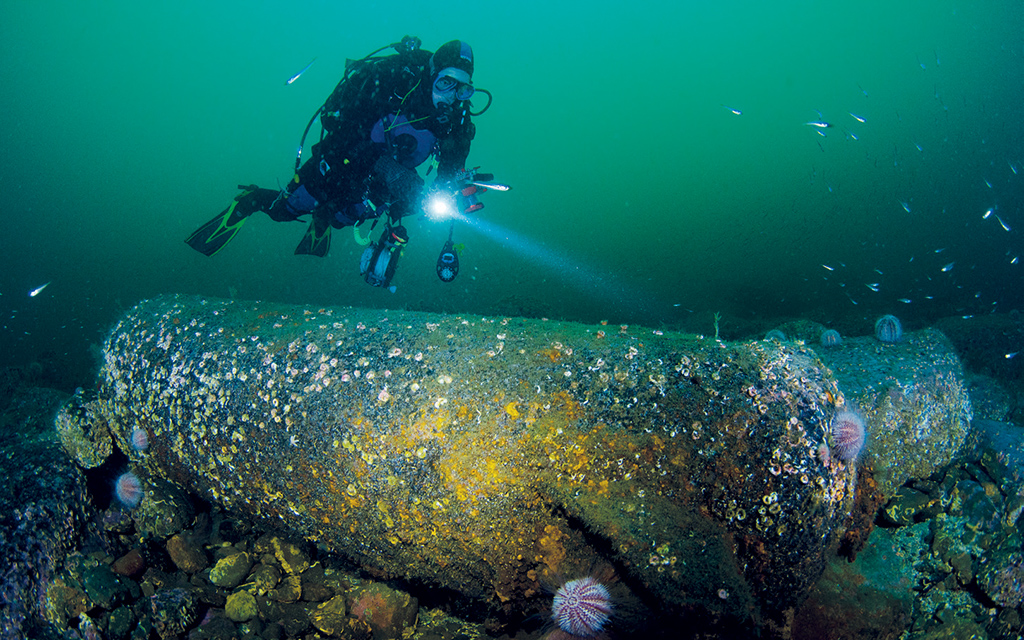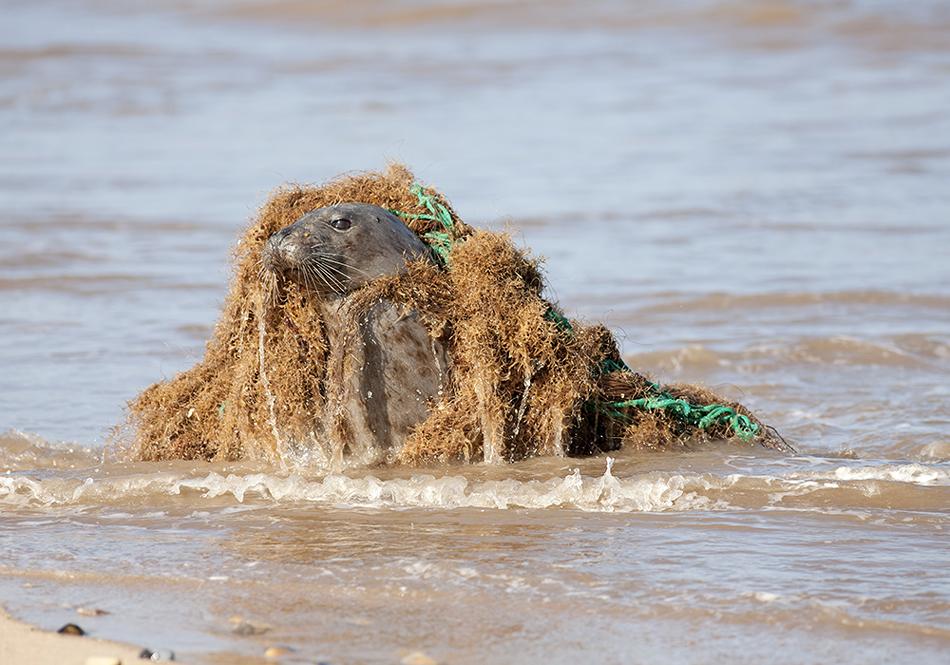
Jane Maddocks argues that government departments are missing the point about the UK’s maritime heritage.
I am at 26 metres on a mobile sandy bottom, probe in one hand, tape measure in the other. It is my buddy Phil’s turn with the metal detector. We are on a project, somewhere off the South Coast, wreck hunting.
Our target is a major warship that I have been looking for, on and off, for 20 years. It will be well buried in sand and beach gravels, with little showing above the seabed. When we find it, it will be awesome. I wonder if the brewery with the relevant name would sponsor us?
The current is picking up. As we surface carefully up the shot (too close to passing shipping to ascend on DSMBs) I am wondering why? Why am I diving in the murk? Why am I spending all of my disposable income chartering boats, replacing old tape measures, and collating co-ordinates?
in discussions with government departments, we need to give them supporting evidence that would help them raise the profile of the importance of our amazing wreck heritage
I do this because, like so many divers, wreck discovery, exploration, and just visiting a wreck as a sightseeing diver is a major reason I dive. And that is why I am feeling really worried as I write this.
The marine environment is so important. The health of our seas, the need to be aware of the effects of ocean acidification, the effects of climate change, and how our behaviour can contribute to modifying or increasing the serious future effects on the earth are not disputed. Water discharge quality, visible pollution as sewage, and the dangers of hidden pollutants in the water via run off and chemicals are all highly visible and contentious issues.
All good so far, so why am I worried? This stuff is important, but for over three years now I have been at meetings of government bodies and responded to various consultations. The word on everyone’s lips is ‘environment’.
Nowhere but nowhere are wrecks or any form of underwater cultural heritage (UCH) given a mention, a passing nod, or even any indication they have any importance whatsoever. When I challenge this, I get the mumbled response ‘of course - environment means wrecks as well’.
No, it doesn’t. This is bad news, and we must redress the balance.
We are lucky that the marine heritage teams in the UK are doing their best to keep the issue of how we value our shipwrecks and UCH in the mainstream discussion with government departments. We need to give them supporting evidence that would help them raise the profile of the importance of our amazing wreck heritage.
The money and the policies are targeted at topics such as Marine Net Gain, MCZs and similar seabed quality and marine life information. What do we need to do to get wrecks into their proper place on the agendas of various bodies?
We have hundreds of divers diving on wrecks every week. Let’s use the magic of the recreational diver’s ability to see what is going on underwater.
Let’s make wrecks the focus as a habitat of species that supports the health of our seas and marine biodiversity. If ‘environment’ is the word of the week we should use that to support getting our wrecks into the public domain as important species habitats.
I need a project manager with a wide range of expertise who can attract others with some of the following skills:
- Marine biologist who is also a committed wreck diver who can create a species observation list
- Data manager who can deal with collating socio-economic value of wreck diving
- Data manager who can collate information about species habitat and help with species identification
- Data specialist who can advise on proper recording and storage of data, so it can be used productively
If you would be happy to contribute data or information, but don’t want to take on a whole project email me and let’s see how we can use your observations. We have over 22,000 members of BSAC; together, we can do this.
Email Jane Maddocks at heritage@bsac.com
Article by Jane Maddocks first published in SCUBA magazine, Issue 138 September 2023.

 Author: Jane Maddocks | Posted 26 Sep 2023
Author: Jane Maddocks | Posted 26 Sep 2023



